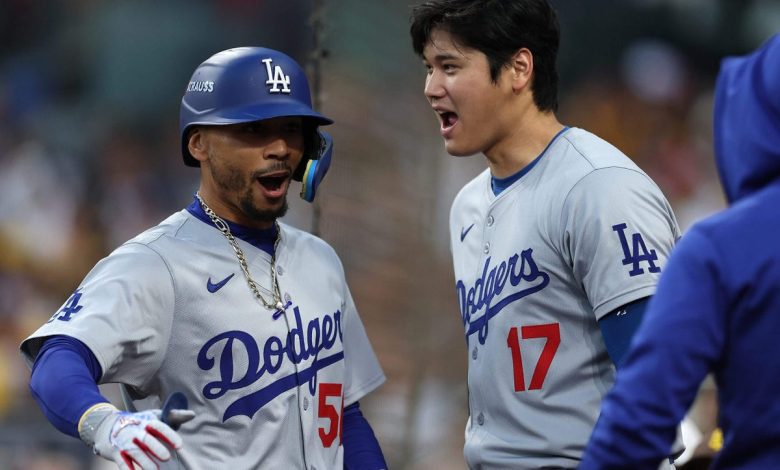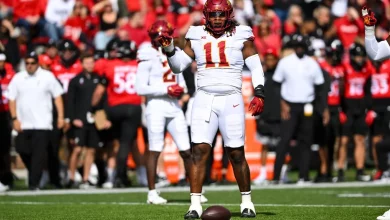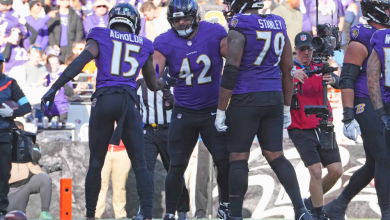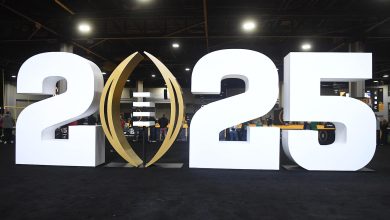Has the Los Angeles Dodgers emerged as baseball’s next “evil empire”?

The term “Evil Empire” in Major League Baseball has historically been associated with the New York Yankees, particularly during their dynasty years in the late 1990s and early 2000s. It connotes an aura of dominance, wealth, and sometimes resentment from other fanbases due to the team’s seemingly insurmountable resources and success. However, in recent years, the Los Angeles Dodgers have positioned themselves as the most powerful, consistent force in baseball. With their large market, deep pockets, innovative front office, and unrelenting drive for success, many are beginning to ask: Has the Los Angeles Dodgers emerged as baseball’s next “Evil Empire”?
While the Dodgers’ rise to dominance might not invoke the same type of animosity as the Yankees’ era of hegemony, their actions and results on the field are drawing comparisons. To determine whether the Dodgers have truly become baseball’s next “Evil Empire,” we must explore their immense financial resources, their dominance in the modern MLB landscape, their roster construction strategy, and the growing narrative surrounding their success, including how other teams and fans view them.
A New Era of MLB Dominance
Over the past decade, the Dodgers have established themselves as the gold standard in MLB, consistently competing for championships and staying near the top of the league year after year. Their sustained excellence, both in terms of regular-season success and postseason appearances, is one of the key factors that fuels the perception of them as a potential “Evil Empire.”
Since the Guggenheim Baseball Management group took over ownership in 2012, the Dodgers have redefined their success through a combination of substantial financial resources, cutting-edge analytics, and a commitment to player development. Their willingness to spend on high-profile free agents, including Clayton Kershaw, Mookie Betts, and Trevor Bauer, has created a team that is consistently one of the highest payrolls in the league. From a financial standpoint, the Dodgers have more than the resources to secure top-tier talent, and they have used those resources to build a team that is almost always in contention for the World Series.
This dominance has translated into results. From 2013 to 2023, the Dodgers made the playoffs in all but one season and won the National League West title nine times during that stretch. Their 2020 World Series championship solidified their place at the pinnacle of MLB, proving that they could not only compete at the highest level but could win it all, despite the presence of other juggernauts like the Houston Astros and the Yankees.
The Dodgers’ ability to sustain a championship-level team year in and year out mirrors the consistency that made the Yankees’ “Evil Empire” moniker stick. Just like the Yankees in the early 2000s, the Dodgers have remained in the postseason conversation regardless of roster turnover, injuries, and market fluctuations. The comparison to the Yankees’ “Evil Empire” isn’t merely about wealth—it’s about consistent, relentless pursuit of championships.
Financial Power: The Key Ingredient to Empire-Building
If wealth is a defining characteristic of an “Evil Empire,” then the Dodgers are certainly in that conversation. Since the Guggenheim group’s acquisition of the team in 2012, the Dodgers have become one of the wealthiest teams in baseball, with an estimated worth of nearly $4 billion. Their massive local TV deal, which is valued at $8.35 billion over 25 years, provides them with unparalleled financial freedom, allowing them to outspend virtually every other team in the league.
In baseball, where the competitive balance between teams can often be influenced by financial resources, the Dodgers’ immense payroll allows them to field a deep and talented roster. Over the past decade, they have used their financial power to sign free agents like Mookie Betts (12-year, $365 million contract), Trevor Bauer (three-year, $102 million), and others like Max Scherzer, David Price, and AJ Pollock. This has enabled the Dodgers to surround their core players, like Clayton Kershaw, with star-caliber talent, ensuring that their roster is always primed for a championship run.
In contrast, many smaller-market teams struggle to retain star players or are forced to rebuild and develop talent from within due to budget constraints. This financial gap between the Dodgers and other teams creates an inherent advantage for them—a disparity that mirrors the financial resources once wielded by the Yankees. The Dodgers’ willingness to spend big in free agency, make blockbuster trades, and extend contracts for top players, regardless of cost, is a critical piece of their dominance.
While teams like the Tampa Bay Rays, Cleveland Indians (now the Cleveland Guardians), and Oakland Athletics focus on developing homegrown talent and optimizing the value of their smaller budgets, the Dodgers have capitalized on their massive financial resources to create a roster built not just on player development but also on the acquisition of established superstars. This reliance on their deep pockets, much like the Yankees of the 1990s, fuels the narrative of the Dodgers as a modern-day “Evil Empire.”
The Strategy: Analytics and Development
While financial resources are undeniably important, the Dodgers’ organizational approach also stands out. In the age of analytics, the Dodgers have positioned themselves as innovators, leveraging technology, data, and cutting-edge player development systems to optimize every aspect of their team. Under the guidance of Andrew Friedman, the Dodgers have embraced modern strategies to not only identify undervalued talent but also maximize the performance of their players, both young and old.
The Dodgers’ ability to develop pitchers is a prime example of their organizational excellence. Through their focus on biomechanics, pitch design, and game theory, the Dodgers have turned once-average pitchers into postseason heroes. Players like Walker Buehler, Julio Urías, and Tony Gonsolin have seen their games elevated through the team’s development system, and veteran pitchers like Clayton Kershaw and Max Scherzer have found success under their watch.
This data-driven approach allows the Dodgers to extract peak performance from players who might have gone underappreciated or undervalued elsewhere. It also gives them the ability to adjust quickly to changing trends in the game, from optimizing launch angles and exit velocities for hitters to perfecting pitch sequencing and bullpen usage for pitchers. By utilizing a robust infrastructure of analytics and a commitment to evolving with the game, the Dodgers have positioned themselves as a model franchise, capable of competing with the best in the world no matter the challenges.
Moreover, the Dodgers’ farm system remains one of the most well-regarded in baseball. It allows them to not only develop homegrown talent but also package prospects in trade deals to acquire established stars like Betts and Scherzer. This dual approach of developing players while leveraging their farm system for major moves further solidifies their reputation as a team willing to invest in both short-term and long-term success.
The combination of financial resources and cutting-edge analytics has given the Dodgers an edge over nearly every other team in baseball, making them one of the most formidable and well-rounded organizations in the sport.
Growing Resentment: The Perception of the Dodgers
One of the defining aspects of any “Evil Empire” is the resentment that it generates. The term itself speaks to the jealousy and disdain other fanbases feel toward a team that consistently dominates the landscape, often with the belief that they’re winning due to their financial advantage rather than pure merit.
In the case of the Dodgers, this resentment has begun to grow, particularly from smaller-market teams and their fanbases. The Dodgers’ financial power, combined with their willingness to trade for stars and outspend other teams, has led to criticism that they are essentially “buying” championships. This criticism has intensified since the team’s acquisition of Mookie Betts in 2020, a move that allowed the Dodgers to add another generational talent to their already loaded roster.
While the Dodgers’ success has been built on more than just their spending power—thanks to their brilliant front office and player development system—the perception remains that their enormous resources give them an unfair advantage. Smaller-market teams, who can’t afford to make the same types of moves, often see the Dodgers’ spending as a roadblock to their own championship aspirations.
The narrative surrounding the Dodgers as baseball’s new “Evil Empire” has become amplified by their recent dominance. They’re the team to beat, and they’ve built a roster that no one can match, with stars across nearly every position. When a team has a roster filled with Hall-of-Fame-caliber players and can outspend everyone else, it’s easy for other teams to view them as the modern equivalent of the Yankees’ “Evil Empire.”
A Modern “Evil Empire”?
The Los Angeles Dodgers are undoubtedly one of the most powerful and successful organizations in baseball today. With their massive payroll, commitment to analytics, player development expertise, and an unrelenting pursuit of championships, they check many of the boxes associated with an “Evil Empire.” However, whether they’ve truly become the next “Evil Empire” in the same way the New York Yankees were once perceived is a matter of perspective.
What is undeniable is that the Dodgers, like the Yankees before them, have built a team that dominates on both the field and financially. Their success has come from more than just their checkbook, but their ability to leverage resources in a way that other teams cannot is what fuels their perception as baseball’s modern juggernaut.
Whether or not this perception is fully embraced by the Dodgers or merely an inevitable byproduct of their success, one thing is clear: the Dodgers have positioned themselves as the team to beat, and their dominance will likely continue to spark debate about whether they are, in fact, the new “Evil Empire” of baseball.









